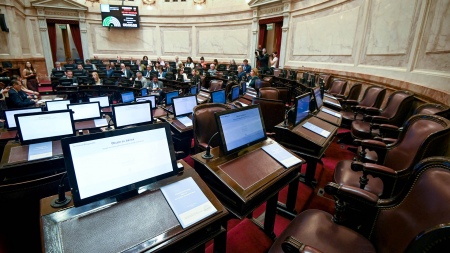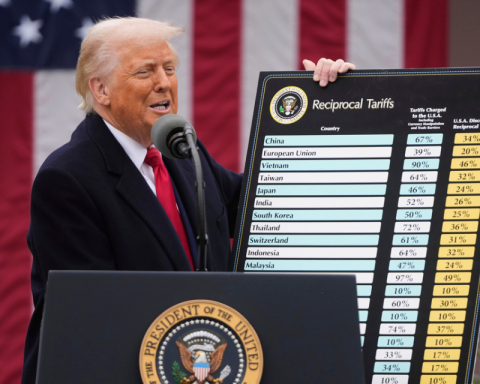The Supreme Court will swear in this Tuesday three senators in the Judicial Council, leaving out the senator of the Front of All (FdT) Martín Doñateand opening a mystery in the deadlines for the final formation of the body that elects and removes judges.
On Thursday the 16th, invoking that the law “puts the President of this Court (Horacio Rosatti) at the head of receiving the oath of law”, the court ordered the pro-government senators María Inés Pilatti Vergara and Mariano Recalde and the opposition Eduardo Vischi to be sworn in. , denying the oath to Doñate.
“The decision of the Court is insane. It recognizes the representation of the Frente Nacional y Popular bloc by ordering the swearing in of its representatives Recalde and Pilatti Vergara, but it denies me the oath as a representative of the other Unidad Ciudadana bloc”judged Doñate shortly after the summons was known.
The senator for Río Negro was definitive when he said, through Twitter, that the Court “intends to arrogate the institutional decision of another State power, violating the Republic and deepening the impunity with which they have been derailing.”
And in this institutional derangement, by means of an administrative act, they intend to arrogate the institutional decision of another State power, violating the Republic and deepening the impunity with which they have been derailing.
— Martin Donate (@martindonate) February 19, 2023
Doñate thus referred to the fact that he was elected by the Senate, to integrate the group of four representatives in the Council of the Magistracy, not once but twice but even so the Court denies him the oath.
The Court’s grounds for denying him the oath was its ruling last November that defined that the creation of the Unidad Ciudadana bloc “did not obey genuine ends but the objective of a political force to occupy a place in the Council that does not correspond to it.”
For the high court, one of the reasons for denying the bench to the Rio Negro is that the “majority block” would end up occupying “three of the four places” that correspond to the Upper House in the Council.
As reported by the Court, the act next Tuesday, will be at 10, will be institutional and will simply consist of the oath of the three senators according to their beliefs, without speeches or other instances.
For this, as in previous oaths, the Court arranged the Bermejo room of the Palace of Justice.

Also as in the previous swearing-in acts of lawyers, judges, academics and legislators, free access for the public or the press is not foreseen, and the act will take place with the guests that the Supreme Court arranges and the relatives of the senators who they will take the oath.
Conflict over representation
The conflict over representation in the Judicial Council was precisely one of the reasons why the president, Alberto Fernández, and twelve governors promoted the impeachment of the members of the Supreme Court that is being processed in Deputies.
Fernández and the president denounced at the beginning of the year an “assault on the Council of the Magistracy” by the magistrates, while they harshly criticized Rosatti for becoming president of the high court and also of the Council.
“The Court made improper progress on the autonomy of the Honorable Chamber of Senators, by arbitrarily and authoritatively determining how the blocks in said Chamber should be organized. This implies a clear constitutional violation of the autonomy of the National Senate and its regulations, the that enjoys constitutional roots”they indicated.
The conflict of powers began in early 2022 when the Court unanimously declared Law 26,080 of 2006 unconstitutional, which had reduced the number of Council members from twenty to thirteen.
Fifteen years after the law was sanctioned, the Court intervened in a claim of unconstitutionality filed by the Bar Association of the City of Buenos Aires, from where they argued that the reform did not respect the “balance” of the different estates.


















